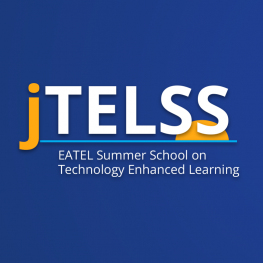Speakers
Stella Polikarpus
Estonian Academy of Security Sciences, EstoniaReet Kasepalu
Tallinn University, EstoniaStart
17/05/2024 - 10:30
End
17/05/2024 - 12:00
The Collaborative Authoring Process Model for Virtual Simulation Scenarios
Friday 17/05 14:00-15:30h
Workshop Space B
Needs Analysis
Virtual, augmented, and mixed reality technologies are garnering increased research interest and are being embedded more and more into learning. Nevertheless, the process of constructing virtual simulation scenarios to tell a meaningful story to students and at the same time assess their knowledge or skills is not getting enough attention from TEL researchers.
In the workshop the Collaborative Authoring Process Model for Virtual Simulation Scenarios is introduced, and one virtual simulation-based scenario of a traffic accident is solved online. This will be followed by a discussion about the experience that will allow participants to reflect how the process model shall help teachers and researchers to better collaboratively author virtual simulations using different technologies. An AR example could be provided as well in a workshop in case of interest of participants.
Learning Objectives
- understand the steps of to measure someone dynamic decision-making skills using the Collaborative Authoring Process Model for Virtual Simulation Scenarios.
- solve a virtual simulation scenario and gets feedback about his or her actual and perceived situational awareness.
- reflect on the fact that virtual simulation scenario construction influences the assessment results.
Pre-activities
Session Description
- Introduction of the Collaborative Authoring Process Model for Virtual Simulation Scenarios (slide presentation and interactive task based on pre-activity).
- Hands on participation: solving a virtual simulation scenario of a traffic accident using the participants’ own computers connected to internet and headsets.
- Reflecting on the results of the scenario and the Collaborative Authoring Process Model for Virtual Simulation Scenarios.

